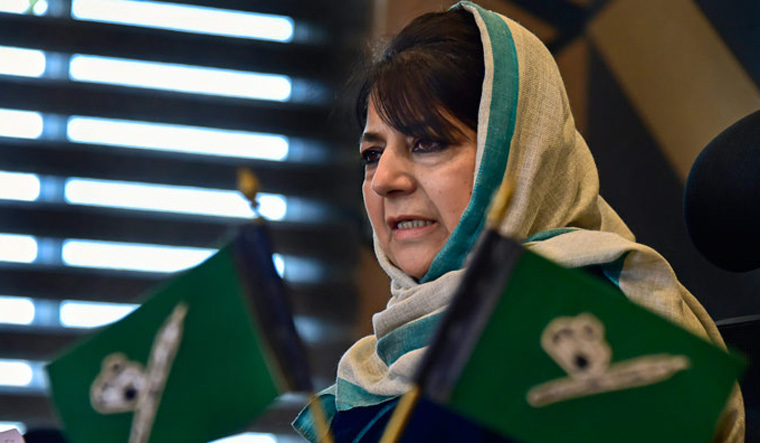The Supreme Court on Thursday heard a batch of petitions from Jammu and Kashmir following abrogation of Article 370. The apex court allowed former Jammu and Kashmir Chief Minister Mehbooba Mufti's daughter to meet her in Kashmir, where she is under detention since a month.
A bench headed by Chief Justice Ranjan Gogoi allowed Iltija, Mufti's daughter, to meet her after she submitted in the court that she has no problem in going to her Srinagar residence but has not been able to move out freely there.
In her petition, Iltija had submitted that she is concerned about her mother's health as she has not met her for a month.
Shift ailing ex-CPI(M) MLA
The same bench also ordered shifting of ailing CPI (M) leader Mohd Yusuf Tarigami to AIIMS in Delhi from Srinagar where he is under house arrest. The court said it was inclined to shift Tarigami, the former CPI (M) MLA, to AIIMS in New Delhi.
CPI(M) leader Sitaram Yechury told the bench that he has no objection if Tarigami was shifted to AIIMS for better treatment. "We want to reserve our right to challenge the detention of former MLA in Habeas Corpus (bring the person) plea," Yechury told the apex court.
The top court had earlier allowed Yechury to visit Jammu and Kashmir to meet his ailing party colleague Tarigami while brushing aside the Centre's claim that it might "endanger the situation" in the state.
It had made it clear that Yechury was allowed to visit Jammu and Kashmir to meet his party colleague only as attention has been drawn to an interim application seeking orders from the court for bringing Tarigami to the All India Institute of Medical Sciences, New Delhi, for better medical facilities.
Yechury filed a petition in the apex court seeking production of Tarigami, who has been detained in Jammu and Kashmir since the Centre abrogated provisions of Article 370 of the Constitution which accorded a special status to the state.
Communication outage
Further, the court fixed pleas of Kashmir Times Editor and others on alleged communication blockade in Jammu and Kashmir for hearing on September 16.
Anuradha Bhasin, Executive Editor of Kashmir Times, told the CJI bench that even after a month of scrapping of Article 370, journalists were not allowed to move freely in the state. However, Solicitor General Tushar Mehta told the court that editors of Kashmir Times chose not to publish their newspaper.
The Centre told the bench that a large number of newspapers were being published from Srinagar. Attorney General K.K. Venugopal told the court that step by step relaxation was being allowed in Jammu and Kashmir.
(With PTI inputs)


